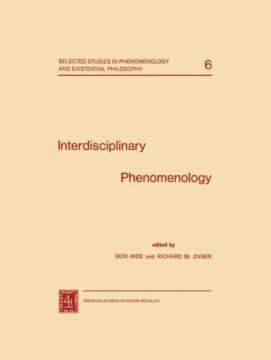Historically, philosophy has been the point of origin of the various sciences. However, once developed, the sciences have increasingly become autonomous, although often taking some paradigm from leading philosophies of the era. As aresult, in recent times the relationship of philosophy to the sciences has been more by way of dialogue and critique than a matter of spawning new sciences. This volume of the Selected Studies brings together a series of essays which develop that dialogue and critique with special reference to the insights of phenomenological philosophy. Phenomenology in its own way has been interfaced with the sciences from its outset. Perhaps the most widely noted relation, due in part to Edmund Husserl’s characterization of the beginning steps of phenomenology as a „descriptive psychology,“ has been with the various psychologies. It is weIl known that the early Gestaltists were influenced by Husserl and, later, the Existential psychologies acknowledged the impact of Martin Heidegger and Jean-Paul Sartre, to mention but two philosophers. And, of course, Husserl’s lifetime concern for the foundations of logic and mathe maties, especially as these (the former in particular) were developed into a foundational „theory of science,“ has figured prominently in these dialogues. 2 INTRODUCTION Less directly but more currently, the impact of phenomenology upon the disciplines has begun to be feIt in a whole range of the sciences.
- Veröffentlicht am Mittwoch 31. August 1977 von Springer Netherland
- ISBN: 9789024719228
- 187 Seiten
- Genre: 20., 21. Jahrhundert, Hardcover, Philosophie, Softcover
